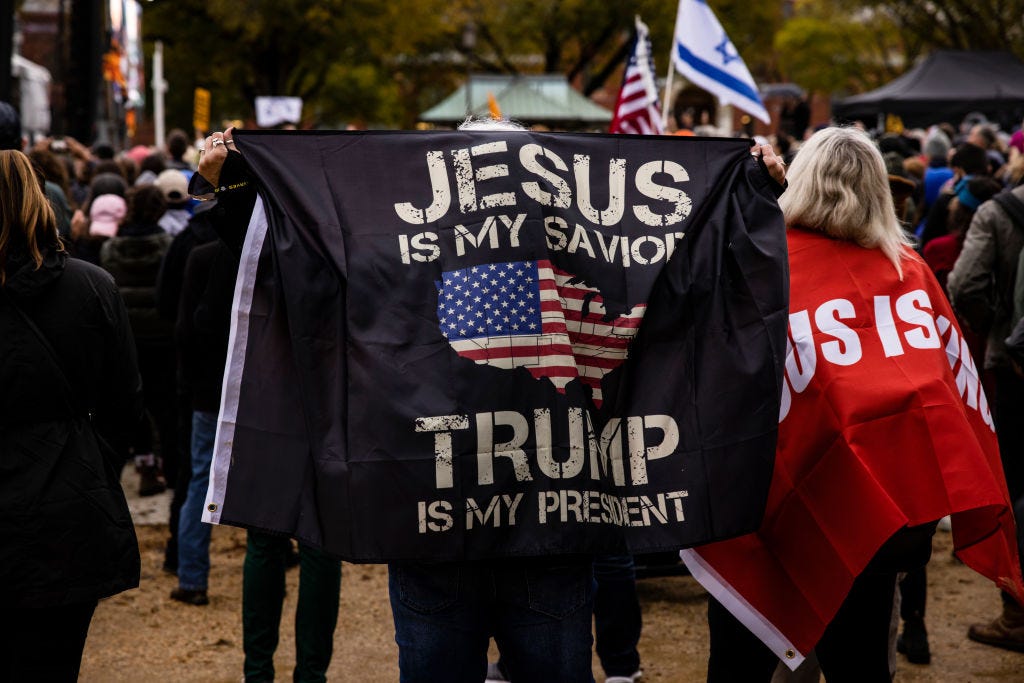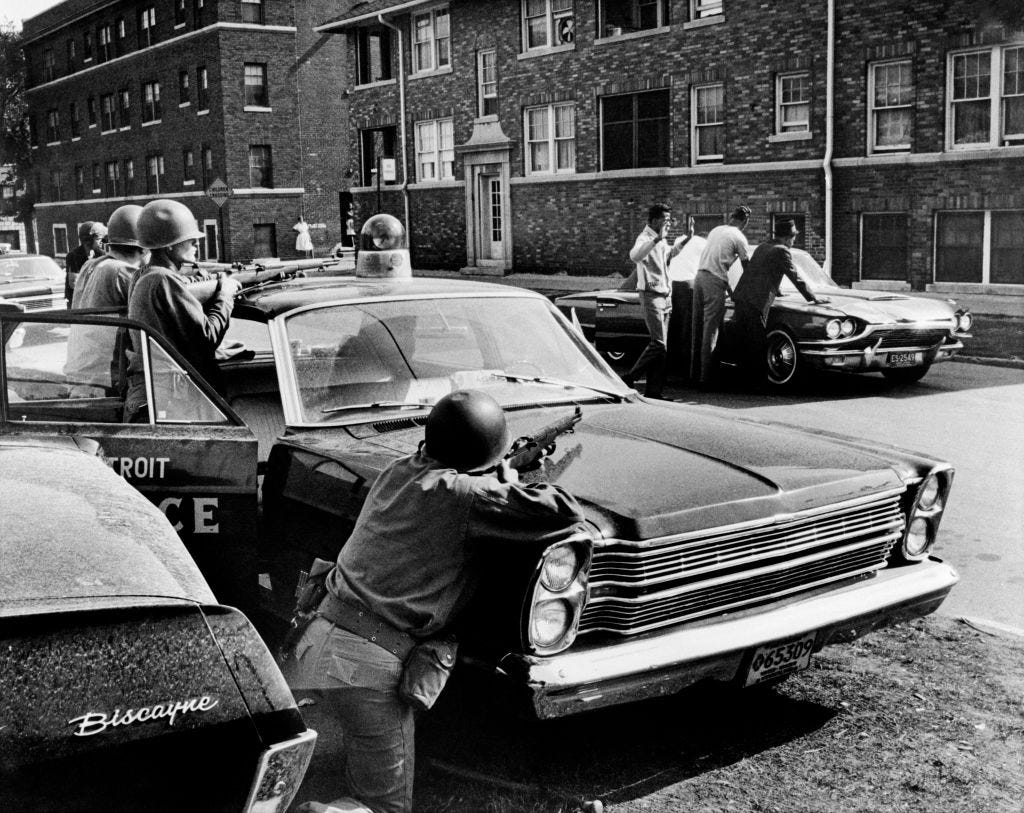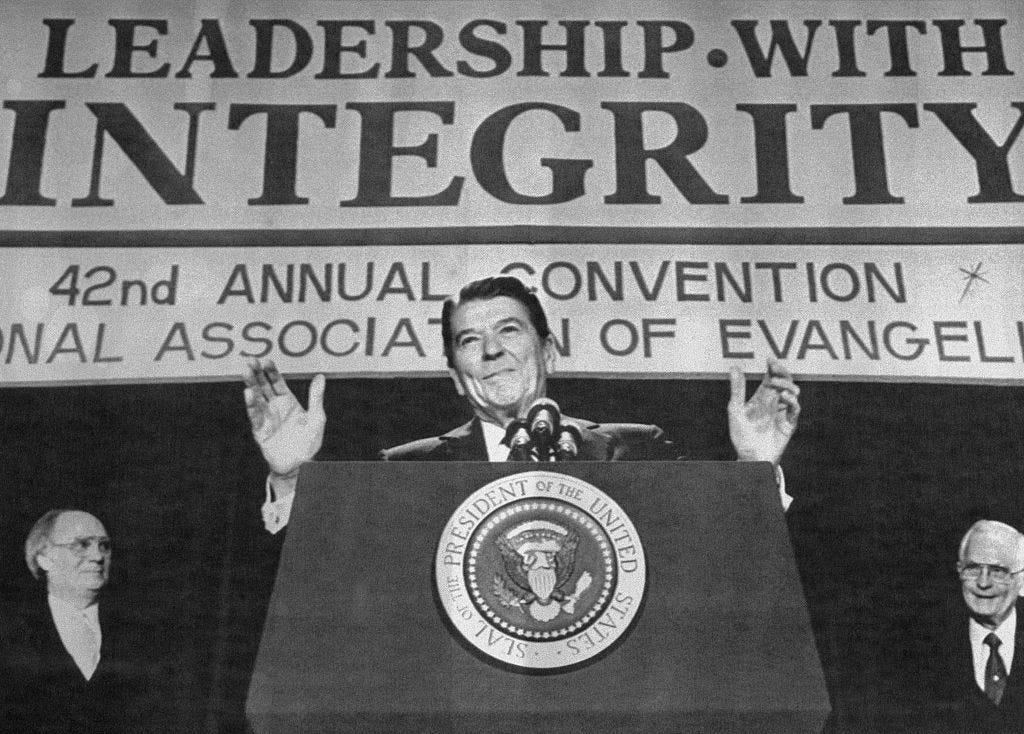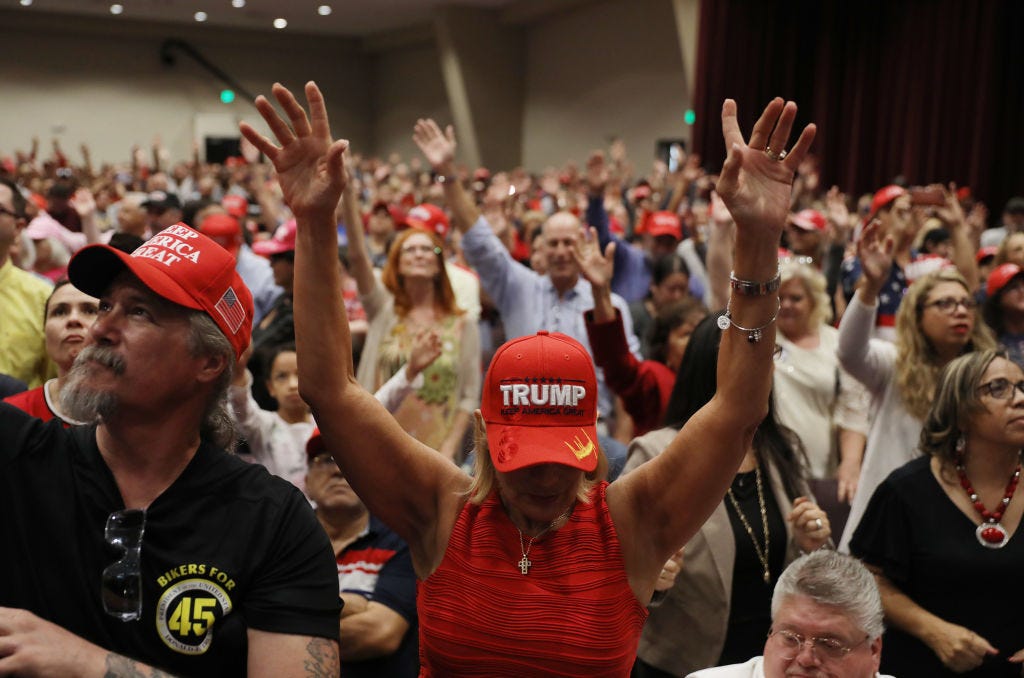Why I still call myself an evangelical, and won’t give up the word to White Christian Nationalists.
When I was growing up, theology was central to evangelicals. But today theology is pushed aside for right-wing politics and white racism as definers of what it means to be an evangelical.
I was reflecting this summer about what it means to be an “evangelical,” which was my home church and family tradition, but has become such a very scary word! I re-read David Brooks’ piece in the New York Times from February, which explained how white evangelicalism has undergone a “Trumpification” and become a racialized partisan force whose values are contrary to the Gospel of Jesus Christ.
Let me respond with two related questions: What is an evangelical now? Or, what has being an evangelical become?
I was born and raised an evangelical, by an evangelical family, in an evangelical Christian church in Detroit. The personal nature of faith was deeply embedded in me and is still there. My objection as a teenager was how evangelical faith was privatized and refused to deal with social justice issues, racism in particular, which I was becoming deeply aware of as a young person in my divided town.
I still remember the exact quote from an elder in my church who was concerned with my regular pilgrimages to the "inner city," where I visited black churches and worked jobs alongside young black men, who helped me understand how they had grown up in a different country from the one where I lived. The elder took me aside to say, "Son, Christianity has nothing to do with racism. That's political and our faith is personal." I remember leaving my white evangelical church that night, in both my head and my heart, because if my church's faith had nothing to do with what was tearing me up, turning me upside down and changing my whole worldview, then I wanted nothing to do with that kind of faith.
Of course, my white church had everything to do with racism in its silent but assumed support and defense of white supremacy. I left the church for the student movements of the time the focused on racism, poverty, and war. I came back to my faith by reading certain New Testament texts that my home church never preached on, and then went to seminary to find and develop a biblical theology for social justice. As David Brooks points out, the evangelical theology that many of us raised in the 1970s, which included both personal faith AND social justice, successfully impacted evangelical churches. Many people in the older generation, like my own parents, came around to a more balanced view of the personal and the social gospel. An older generation of evangelical leaders ultimately accepted it because of theology, which had always driven evangelicalism.
But in the 1980s Republican operatives took over white American evangelicalism, transforming a bi-partisan faith movement into a steadfast bloc of one political party. Some of these operatives, like Richard Viguerie, have admitted the mission and strategy to me. Donald Trump is the culmination of this strategy, drawing a majority of white evangelicals to a man who exemplifies the worst of the impersonal, immoral, dishonest, unethical, and selfish sexual values that would have been anathema in my home church.
Author and political scientist Robert P. Jones sums up what happened well:
The one remarkable thing to me is that, since Reagan, if you want a shorthand for understanding the religious landscape in politics, it is that white Christian groups tend to lean toward or strongly support Republican candidates, and everybody else in the country-- non-white Christians, non-Christian religious groups, religiously unaffiliated-- lean toward or strongly support Democratic candidates. That is the divide we have been living with since Reagan. When the Democratic party became the party of civil rights, whites in the south went to the Republican party.
When I was growing up, theology was central to evangelicals. But today theology is pushed aside for right-wing politics and white racism as the definers of what it means to be an evangelical. What drives the majority of white evangelicals today is two identities: racial and political. They are “white” first and “Christians” second, and the first word overrides the second. They are right-wing Republicans first and Christians second, with political “outsiders” increasingly excluded from their churches, as Brooks describes, breaking up old friendships and destroying the unity in the body of Christ.
Who are white evangelicals today? They and many of their evangelical megachurches (or should we call them MAGAchurches?) have become the White Christian Nationalists, who are, tragically and painfully, the core of the opposition to building a true multi-racial democracy in America. And that conformity to a white racist American culture is also not just a political issue, but indeed a theological one.
White Christian nationalism is also directly and specifically anti-Christ. Jesus’ vision of the kingdom of God was deliberately meant to bring diverse and divided people together by being reconciled to Christ. The majority of white evangelicals who have become captivated by White Christian Nationalism are standing against their Black brothers and sisters in the body of Christ, and even supporting their Republican Party's suppression of their fellow Christian's voting rights, if they are citizens of color, which is an assault on both the image of God (Genesis 1:26), the imago dei, and the body of Christ.
I still call myself an "evangelical" (to the chagrin of my wife and many in my own family), but the white evangelicals who have become White Christian Nationalists can no longer honestly call themselves that. This is not just another political debate, but an urgent theological one, which many of us are ready to have. It is time to be driven by our theology again, and not by conservative right-wing Republican politics, or by white identity politics, or any other kind of politics--left or right. As I always advise my students, “Don’t go right. Don’t go left. Go deeper.”
It's time to have our faith shape our politics and not the other way around.







Hey Jim, you are a braver man than I am. I deleted the tag "evangelical" many years ago when I became a member of the Episcopal denomination. Very important also was my research that showed that the concept of "inerrancy" was not only a wrong understanding of a biblical perspective on the Scripture and revelation but it was also historically unknown. Finally there are some basic theological concepts about being evangelical which were also inaccurate. So I have to move out of "evangelicalism" and into an ecumenical understanding of Christian faith. Rolling, Roy M Carlisle
Jim, your stance and spot on description of your Christian theology mirrors my own. I have never referred to myself as evangelical, but simply Christian. And, as you so correctly point out, our Christian teaching means we embrace people of every race and nationality and fight to uphold Jesus' vision for all people reconciled in him. Thank you for this short but very profound piece.